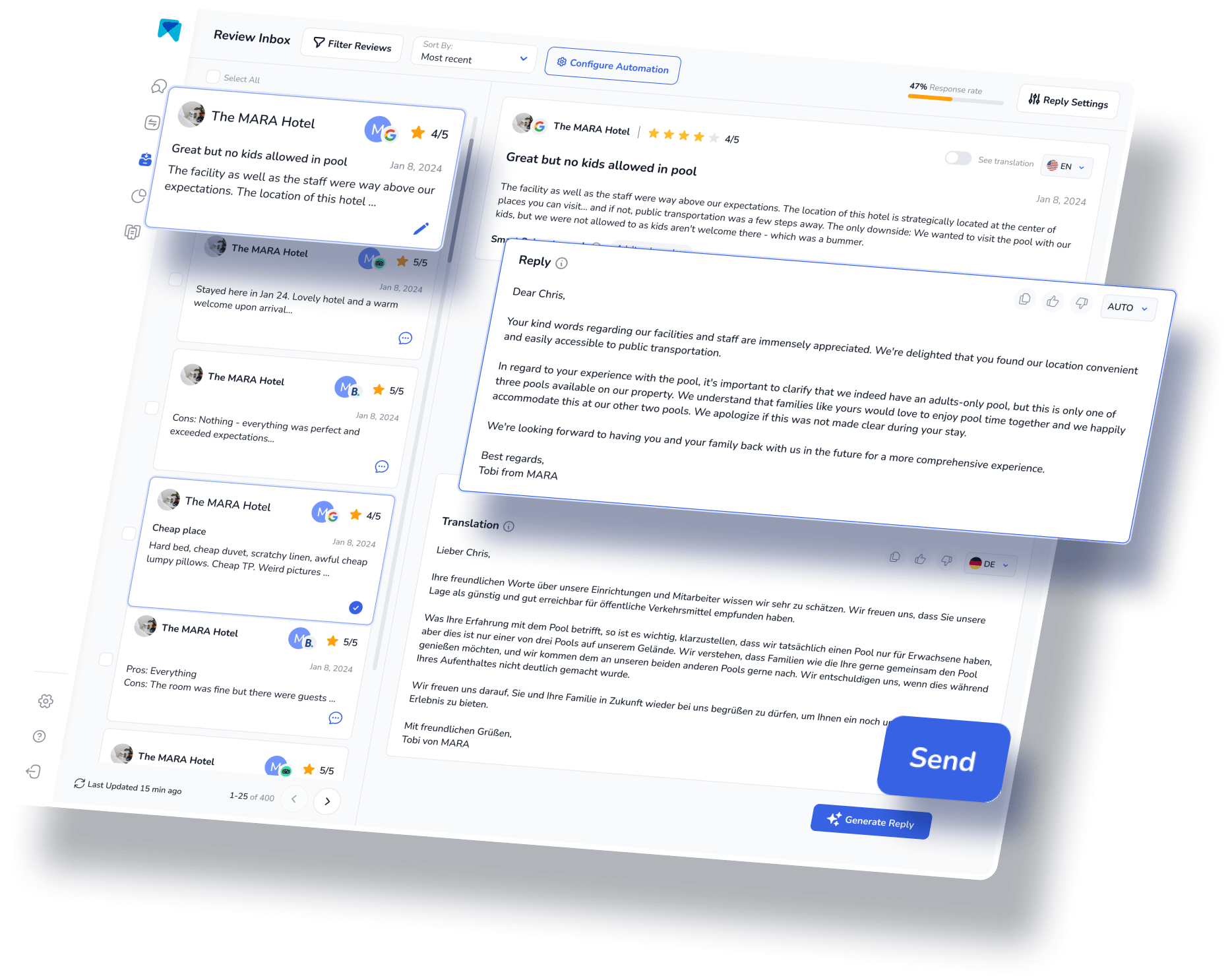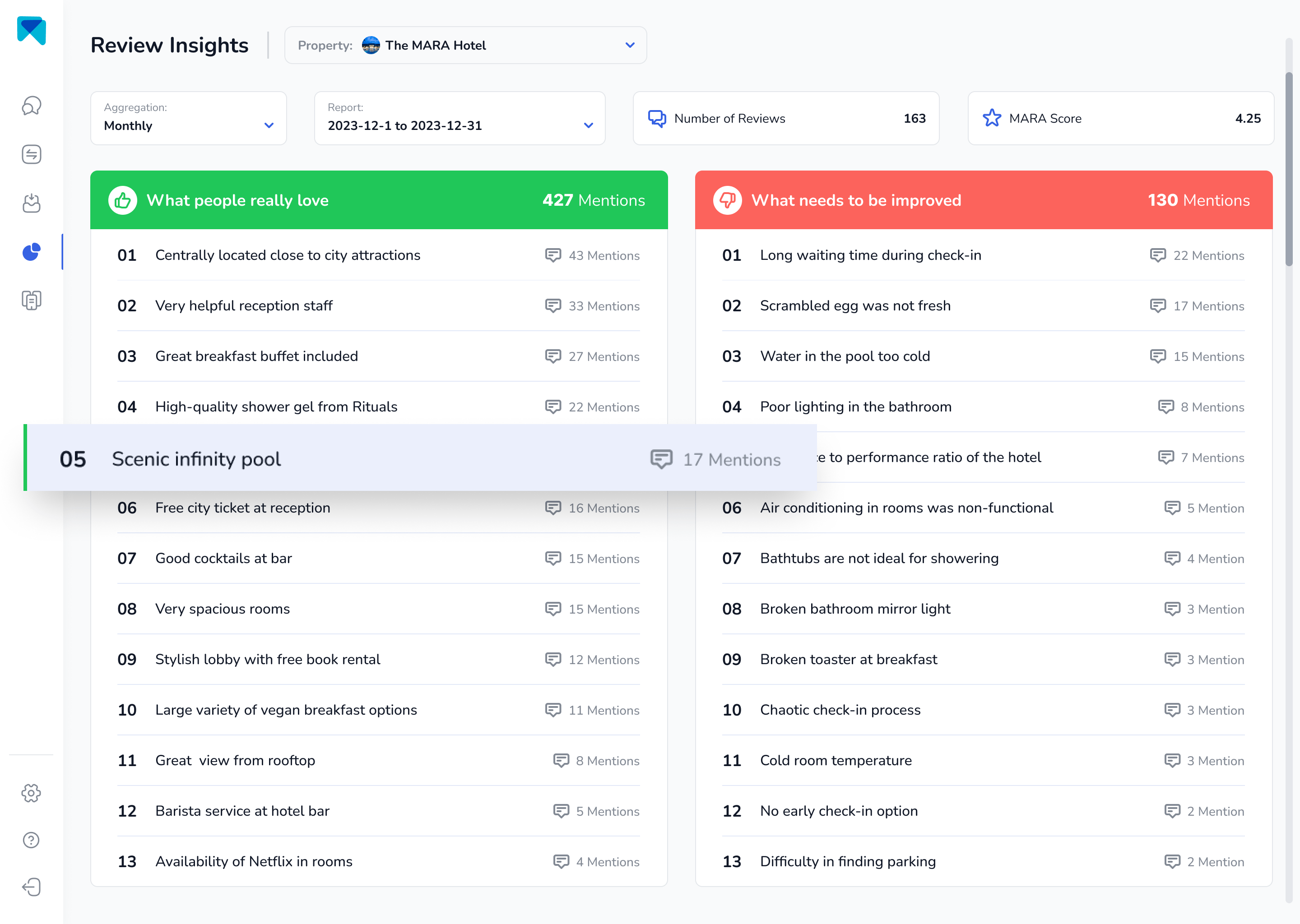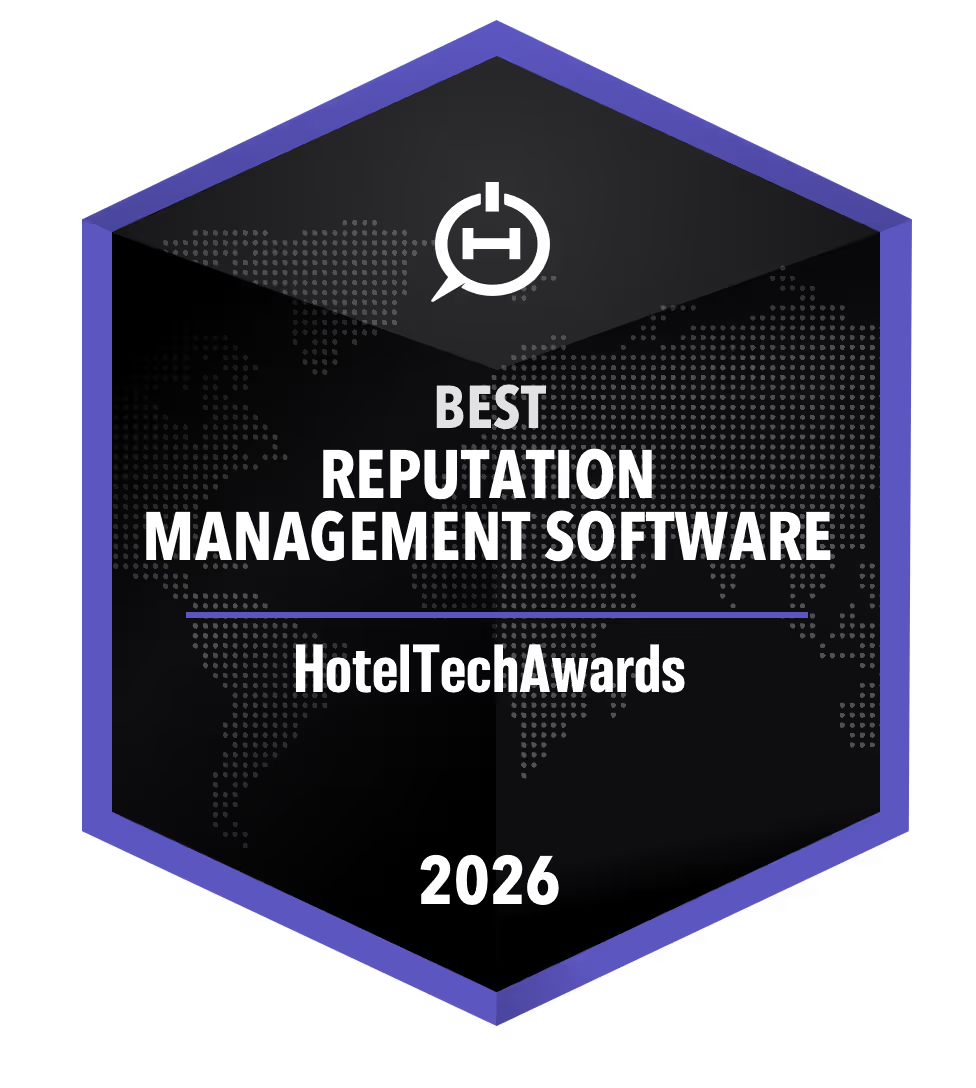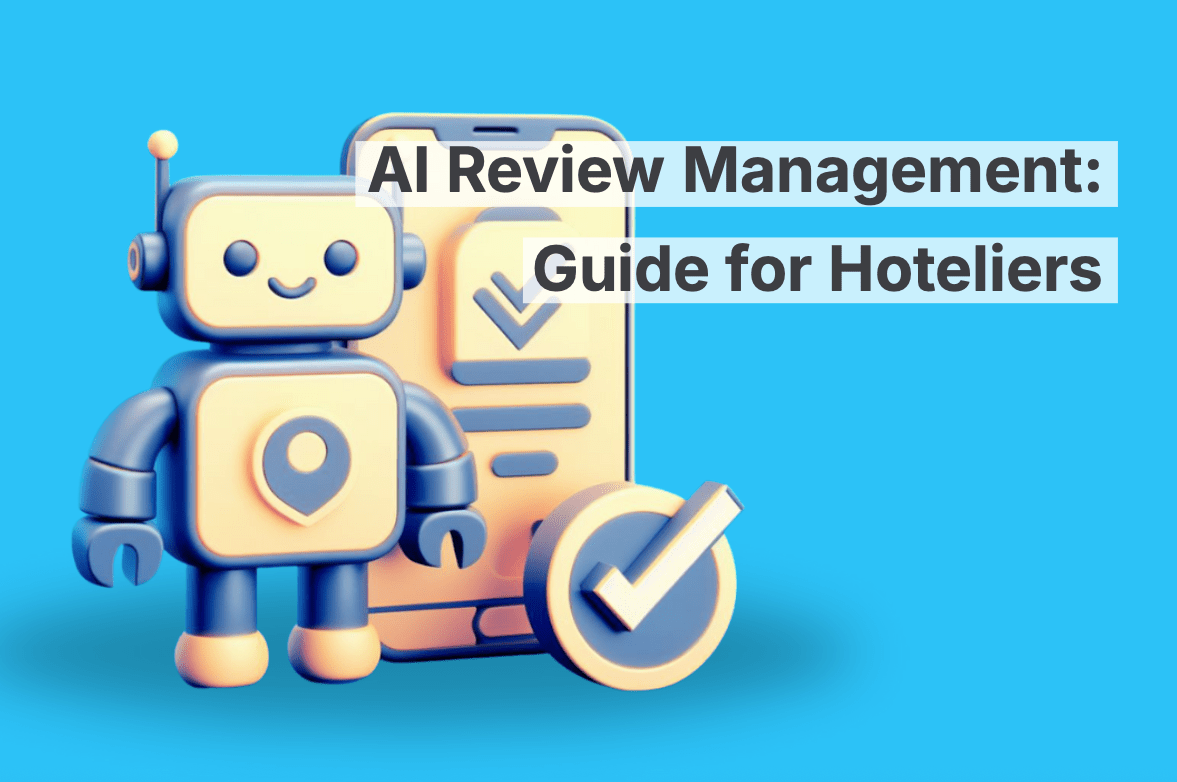In an ever-evolving business landscape, the hotel industry is no exception to dramatic shifts. Gone are the days when generic, one-size-fits-all services were enough to satisfy guests. The rise of the digital age has ushered in a new era where guests yearn for personalized experiences, and the competition is fiercer than ever.
Today, the role of technology in hotels isn't just significant – it's indispensable. It has become a crucial element that not only enriches the guest experience but also enables hotels to stay competitive. But what does the future hold for hotel technology? Let's delve into the 20 most promising hotel technology trends that will redefine the hotel industry landscape by 2025.
What are the hospitality technology trends in 2025?
The future of hotel technology is a fascinating blend of innovations, driven by changes in consumer behavior, technological advancements, and transforming circumstances brought upon by unprecedented situations like the COVID-19 pandemic.
- Automated text messages
- From ChatGPT to specialized AI solutions
- Keyless entry systems
- Sustainable hotels
- Contactless payments
- Chatbots for customer support
- Mobile check-ins
- Hotel robots
- Hotel virtual reality tours
- Voice searches
- Hotel revenue management softwares
- Smart hotel technologies
- Service automation
- Guest apps
- WiFi 6
- Digital guest books
- Flexible Property Management Systems (PMS)
- Streaming services
{{blog-cta="/features/product-updates"}}
Ready to dig deeper? Here are the latest hotel technology trends:
1. The rise of automated text messages
One of the most noticeable hotel technology trends that's gaining momentum is the use of automated text messages. This isn't surprising given the widespread use of mobile devices today. Text messages present an effective medium for hotels to share crucial information and connect with guests in a timely and personal manner. These messages can be sent via traditional SMS or through a dedicated hotel app, depending on the hotel's preference. In fact, recent surveys suggest that SMS has 98% open rate while emails only have 20%.
A prompt welcome message right after a guest checks in can make a big difference. It can set the tone for their stay and provide them with essential information that they can refer to. On the other hand, post-check-out messages asking for feedback can provide hotels with critical insights that they can use to improve their services. As more and more people rely on their mobiles for communication, automated text messages are set to play a significant role in improving guest experiences in the hotel industry.
2. From ChatGPT to specialized AI solutions in the hotel industry
ChatGPT, one of OpenAI's most advanced AI models, has paved the way for significant changes across various sectors, including the hotel industry with its ability to generate relevant and coherent text. However, as we delve deeper into the digital age, it's becoming increasingly clear that the future lies in more specialized AI solutions. These innovative tools are built on the foundation of powerful technologies like ChatGPT and are tailored to excel in specific tasks and understand the intricacies of their respective industries.
Revolutionize Customer Interactions: Explore AI-driven Personalization with MARA
Writing personalized responses to online reviews can be a daunting task, but it doesn't have to be with our AI Review Assistant of MARA. This intuitive tool is designed to ease your Online Reputation Management process, making it more efficient, personalized, and time-saving. It offers the best and most personalized AI for responding to and analyzing your guest reviews.
Streamlined Review Inbox
Keeping track of your online reputation manually has become nearly impossible due to the proliferation of listings and review platforms. Fortunately, you can consolidate all your online reviews seamlessly with a comprehensive Review Inbox.
One of the key features of MARA AI is the Review Inbox. Your review inbox makes responding to reviews as simple as hitting "Generate reply" and clicking "Send". The Review Inbox connects to multiple review sources, including Google, Booking.com, and Tripadvisor, giving you a panoramic view of all your reviews. You can even configure review response automation: Why not allow MARA to automatically respond to simple reviews, like 5-star Google reviews with no text, ensuring you never miss a review? Daily notifications about new reviews keep you updated and in control.

AI-Powered Review Analytics
Extracting actionable insights has become a critical strategy in today's data-driven age. To help you understand and analyze the multitude of reviews, the Review Assistant also incorporates Review Analytics. This provides actionable, easy-to-understand insights that are tailored exclusively to your business. With MARA, you can quickly get the gist of all your reviews without needing to read each one. The analysis is so detailed that you can find out about specific issues like "water in the pool is too cold" or "lack of vegan breakfast option”. These insights help optimize guest experience without requiring you to be a data expert.

The most personal response AI
Personalization stands as a pivotal feature in AI solutions for hospitality, significantly enhancing guest experience. Luckily, MARA's AI isn't just about efficiency; it's about personalization too.
The Brand Voice feature allows the AI to adapt to your tone, making sure your responses sound authentically you. Plus, with Smart Snippets, you can "teach" the AI how to respond to recurring praises or complaints. Your AI then incorporates this information into its responses, but always with different words, providing more personalized, relevant replies.
This review response assistant has quickly become a game-changer for over 2000 customers. Its promising capacity to elevate your overall rating, amplify response rates, glean insights from customer feedback, and economize both time and money, is the reason behind its growing popularity.
Managing online reviews need not be an overwhelming task. With the appropriate software, not only can you streamline the process, but you can also personalize your responses, and derive valuable insights from the reviews. So, why hesitate to give our AI Review Assistant, MARA, a try? It's completely free for testing, doesn't require a credit card, and can be fully operational in less than five minutes.
3. The adoption of keyless entry systems
The keyless entry method is rapidly gaining traction in the hotel industry, leading to the slow phasing out of traditional physical room keys. Presently, 46% of travelers consider keyless entry to be an essential feature when choosing a hotel, a figure that's anticipated to increase in the future. Keyless entry provides guests with the convenience of bypassing potentially long check-in and check-out queues at the front desk, allowing them to access their rooms directly via their mobile devices. Although some guests may have concerns about the security of keyless entry, rest assured that the available solutions are encrypted and linked to the guests' unique phone numbers, offering a secure method that expires as soon as the guest checks out.
4. Energy positive hotels: a step towards sustainability
In this day and age, sustainability is a hot topic not just for guests but also to hotel partners. In a recent survey, 88% of business decision makers have said they prefer hotels that are transparent about sustainability. As a result, the hotel industry is experiencing a surge in energy-positive hotels.
What is the use of technology in sustainable tourism?
Energy positive or sustainable hotels operate in a way that they generate more energy than they consume, usually through renewable sources like solar and wind power. The excess energy is then used to benefit the local community, effectively offsetting some of the negative effects of tourism. With more and more guests becoming environmentally conscious, energy-positive hotels are gaining popularity. These hotels not only help in preserving the environment but also add value to the local community by being energy suppliers. This can greatly enhance a hotel's reputation, making it more appealing to a wider audience.
5. Contactless payments: a necessity, not just convenience
Contactless payments have emerged as crucial in the hotel industry in recent years. These payments facilitate faster and more convenient transactions, enhancing the payment experience for guests. Originally, contactless payments were made through special cards. However, technology has evolved to include mobile wallets and wearables, giving customers a variety of payment options, even when they don't have their cards.
In light of the COVID-19 pandemic, contactless payments have become more than just a convenience; they've become a necessity. They help protect both guests and hotel staff by reducing physical contact, thus minimizing the risk of virus transmission. This trend shows that technology can play a crucial role in addressing health and safety concerns, especially in a post-pandemic world.
6. Chatbots: seamless customer support
The use of chatbots and online widgets has revolutionized customer service in the hotel industry. These AI-based tools are placed on various platforms like Facebook Messenger and WhatsApp, providing quick, automated responses to customer inquiries at any time of the day. Some chatbots are even equipped with multi-language capabilities, allowing hotels to cater to a wider range of guests.

The use of chatbots can dramatically improve a hotel's responsiveness to customer inquiries and complaints. This can lead to enhanced guest experience and potentially increase customer loyalty. As people become more accustomed to instant gratification, hotels that can provide immediate support will have an edge over those that don't.
7. Mobile check-in: a leap towards greater convenience
The process of checking in at a hotel has traditionally been a time-consuming task. However, the advent of mobile check-in technology is changing that. This tech allows guests to check in via a mobile app, eliminating the need for long queues and reducing wait times. It provides hotels with the opportunity to move away from fixed check-in times, paving the way for a smoother, more flexible check-in process.
As more people start to appreciate the convenience of mobile technology, mobile check-ins and online listing reservations are expected to become the norm rather than the exception. The potential of this technology extends beyond just check-ins. It can also be used for room selection, payments, and even for accessing rooms, truly revolutionizing the guest experience in hotels.
8. The advent of hotel robots
Another intriguing trend that's shaping the hotel industry is the use of robots. These machines are used for a variety of tasks, such as greeting guests upon their arrival, providing tourist information round the clock, and even helping with housekeeping duties. Leading the charge in the realm of robot concierges is Hilton’s Connie, a sophisticated AI-powered hotelier fueled by IBM’s Watson supercomputer. Connie, along with counterparts like Aloft Hotels' ALO, Yotel Hotels' Yobot, and Hotel EMC2's twin robots Cleo and Leo, is transforming the check-in process and redefining guest experiences.

Looking forward, as technology continues to evolve, robots are set to play a more significant role in the hotel industry. With the ability to perform tasks around the clock without getting tired, robots could greatly improve efficiency and service levels in hotels. While the use of robots may raise concerns about job displacement, they're intended to complement human staff, not replace them.
9. Hotel virtual reality tours: the new way to explore
Virtual reality (VR) technology is redefining the way potential guests explore hotels. In fact, surveys suggest that 51% of travelers consider VR as one of the most appealing technological concept to aid their travel booking process.
VR provides a digital recreation of a hotel, allowing potential guests to virtually navigate and explore the hotel's amenities and rooms from the comfort of their homes. As a result, VR tours have become a prevalent feature on many hotel websites, attracting additional bookings by giving potential guests a comprehensive preview of what they can expect during their stay. This use of technology provides an immersive experience, making it a powerful marketing tool for hotels. It allows potential guests to make more informed decisions, increasing their likelihood of booking a stay.
10. Voice searches: a hands-free revolution
With the rise of voice-activated devices like Alexa and Siri, the way guests interact with hotels is changing dramatically. These gadgets allow guests to book a stay, contact hotel representatives, or seek tourist information, all hands-free. This provides a seamless, convenient experience for guests, enhancing their engagement with hotels and improving their overall hotel experience. As more people start to embrace voice-activated devices, voice searches are set to become increasingly common in the hotel industry.
11. Hotel revenue management software
As the hotel industry becomes increasingly competitive, revenue management systems (RMS) and business intelligence analytics tools have become essential for modern hoteliers. These software solutions help consolidate, organize, and analyze vast amounts of data, making the job of revenue managers or business analysts much easier and more efficient. With these revenue management tools, hotels can make more informed decisions about pricing, room allocation, and marketing strategies, ultimately helping them increase their bottom line.
How is IoT used in hotel industry?
IoT transforms hotel revenue management through smart controls for energy efficiency and occupancy insights, personalized guest experiences, predictive maintenance, and automated check-in. Real-time data analytics inform pricing strategies, while feedback mechanisms and cross-selling opportunities enhance customer satisfaction and drive profitability. Supply chain optimization and asset tracking round out the comprehensive benefits of integrating IoT into hotel operations.
12. The rise of smart hotels
In today's digital age, "smart" technology is becoming an integral part of our lives, and hotels are no exception. As of 2021, the global smart hospitality market size was valued at $18.8 billion, and it’s projected to reach $133.7 billion by 2031.
What is smart hotel technology?
The rise of smart hotels is characterized by the use of advanced technology to personalize the guest experience. This includes automated check-out services, customized room settings, and the integration of the Internet of Things (IoT). By linking various devices and systems, hotels can provide guests with a unique, personalized experience, ultimately enhancing their satisfaction and loyalty.
13. Service automation: giving power to guests
Another noteworthy trend in hotel technology is service automation. This shift reflects a change in power dynamics, with more decision-making power being given to guests. With self-service kiosks, online registration, feedback questionnaires, and pre-set room amenities becoming more prevalent, guest autonomy is on the rise. Hotel staff is in the picture too, ensuring that the human touch is not lost amidst the automation. By empowering guests to customize their experience, hotels can provide a unique, highly personalized experience.
{{blog-cta="/features/product-updates"}}
14. Guest apps: enhancing connectivity and correspondence
With smartphone usage at an all-time high, hotel-branded apps are becoming a vital tool for improving guest connectivity and communication. These apps offer a plethora of features, such as virtual payments, 360-degree room tours, and a direct communication line with hotel staff. By leveraging mobile technology, hotels can create a seamless, personalized guest experience, enhancing guest satisfaction and loyalty.

The Hyatt Hotels Mobile App stands out as a prime example of the evolving trend in hotel-branded apps. Going beyond conventional booking features, the Hyatt app provides a comprehensive toolkit to enhance the guest experience. Whether for potential guests looking to easily reserve a room across Hyatt's global network of over 600 hotels or for loyal patrons accessing their World of Hyatt loyalty program, the app offers a range of functionalities. This includes reviewing member benefits, discovering discount rates, and even receiving complimentary nights as bonus offers.
15. WiFi 6: the next generation of connectivity
WiFi 6, the latest generation of WiFi technology, promises significant improvements in data rates and network capacity. This allows more devices to be connected to the hotel's WiFi network without affecting the performance, improving the overall user experience. With most guests expecting high-quality, uninterrupted internet connectivity during their stay, investing in WiFi 6 can provide hotels with a competitive edge.
16. Transition to digital guest books
In response to the rising digital trend, many hotels are replacing traditional printed brochures with digital guest books. This offers guests an effortless, contact-free method of accessing vital information about the hotel.
What is digitalization in hotels?
Digitalization in hotels refers to the integration and use of digital technologies and solutions to streamline and enhance various aspects of hotel operations, including guest services, bookings, check-in processes, and overall management. This involves adopting digital tools such as online booking platforms, mobile check-in systems, and data analytics to improve efficiency, guest experiences, and overall business performance.
One significant advantage of a digital guest book is its ability to provide each guest with a personalized experience. Hotels can create a bespoke guest portal, complete with hotel branding, where guests can log in with their unique credentials to access their digital keys, make purchases, or upgrade their rooms. Accessible via a mobile app, digital guest books empower guests to tailor their experience while reducing the workload on staff by offering self-service resources.

Suitepad's technologies, for instance, provide hotel guests with a point of contact to independently explore information, offers, and services around the clock through a touchscreen monitor. This eliminates the need for your reception staff to personally handle all inquiries, particularly during peak hours.
17. Emergence of flexible property management systems (PMS)
Hotels are increasingly dabbling in hybrid models that mix various types of inventory within a single property. For instance, Silverthorne's The Pad combines shared dorms, private rooms, and furnished apartments under one roof. While this diversity appeals to travelers, it introduces a degree of complexity for the hotels. To manage this, a flexible PMS becomes crucial, allowing hotels to expand their offerings and variety of accommodations. Hotels with hybrid properties will need a PMS that smoothly integrates with other technologies, providing the operational flexibility necessary for short-term rentals, such as pre-arrival check-ins, keyless entries, and messaging platforms.
18. Integrations with streaming services
Also making waves in in-room technology trends are streaming platforms. Modern guests expect the ability to stream their favorite shows or movies from popular service providers like Disney+, Netflix, or Amazon Prime. To meet this demand, hotels should transition from traditional cable TV in rooms to these streamed options, enhancing the guest's experience. Pioneering this trend, Hilton and Netflix have partnered to let Hilton guests log into Netflix and control their streaming directly via Hilton's app. Noelle Eder, Hilton's Chief Information Officer, noted that "our guests want to feel connected while traveling, just as they do at home, so we’re giving them seamless access to their favorite Netflix shows, films, and specials while on the road.”
Final thoughts
The evolution of technology is reshaping the hospitality industry, and hoteliers who fail to adapt may risk becoming obsolete. Automated text messages, AI solutions, keyless entry systems, contactless payments, chatbots, mobile check-ins, and even hotel robotics are not just trends, but the industry's future. Similarly, the importance of sustainability, represented by energy-positive hotels, and the focus on health and safety in the age of COVID-19 are changing the way we perceive and interact with hotels.
The digital age is elevating guest expectations, demanding more personalization, convenience, and speed. Embracing these emerging technologies can help hoteliers meet these expectations and compete effectively in this new environment. However, while implementing these technologies, it's vital to remember that they should enhance, not replace, the human touch that defines hospitality. After all, the ultimate goal is to provide a memorable guest experience, and technology should serve as a tool to achieve that end.
Hotels that can strike the right balance between leveraging the power of technology and maintaining the essence of hospitality are poised to lead the industry into a new era. The future of hotel technology promises thrilling changes that will redefine guest experiences, and indeed, there has never been a more exciting time in the hospitality industry.
This article is part of our hero content “The Future of Hospitality Industry: Integrating AI into Hotels and Restaurants".
Frequently Asked Questions:
Technology helps hotels by streamlining operations, enhancing guest services, and automating tasks such as reservations and check-ins, ultimately improving overall efficiency and customer satisfaction.
Information technology can elevate guest experiences in hotels through features like mobile apps for seamless check-ins, personalized recommendations based on guest preferences, and in-room smart devices, providing a more tailored and convenient stay.
Social media significantly impacts the hotel industry by serving as a powerful platform for marketing, customer engagement, and reputation management. Positive reviews and recommendations on social media platforms can enhance a hotel's image, while negative feedback can spread quickly, affecting its reputation.
Future digital technologies for hospitality include advancements in artificial intelligence for personalized guest interactions, augmented reality for immersive experiences, the Internet of Things (IoT) for smart room amenities, and blockchain for secure and transparent transactions, promising a more technologically advanced and interconnected hospitality landscape.


















-min.avif)
